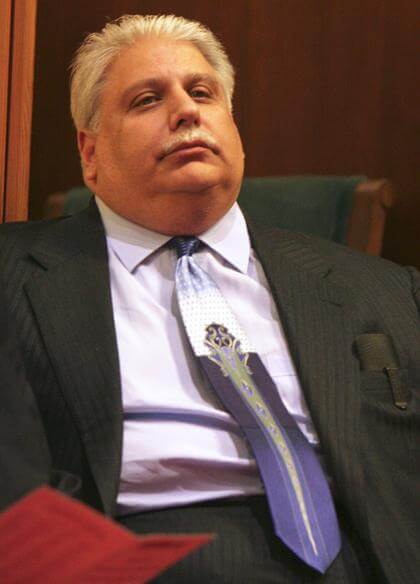By Anna Gustafson
New Parkway Hospital in Forest Hills and its former chief executive officer, Robert Aquino, have filed a lawsuit against New York state that alleges the medical center was forced to close down after it did not pay bribes to former state Assemblyman Anthony Seminerio, a Democrat from Richmond Hill.
The lawsuit, filed in Queens Supreme Court Aug. 5, calls for the state Department of Health to review reinstating Parkway’s operating license, which the state revoked in November.
Seminerio, who pleaded guilty in June to taking $310,000 in secret payments from Jamaica Hospital, allegedly attempted to extort money from Aquino and Parkway Hospital and when Aquino would not cooperate, Seminerio retaliated, according to the lawsuit.
“It is self-evident that Seminerio’s criminal conduct had a direct impact on the decision to close Parkway Hospital,” the suit states. “As an operating hospital, Parkway’s license could not be revoked absent due process. Having a license revoked for the refusal to pay a bribe to a public official surely constitutes the denial of due process.”
Parkway was one of the hospitals the New York State Commission on Healthcare Facilities in the 21st Century, known as the Berger Commission, mandated to close because the panel said the area had too many unused hospital beds. State Health Department spokeswoman Claudia Hutton said in November that Parkway “scored lowest of hospitals in that area on items such as financial stability, numbers of patients served and how well their revenues covered their expenses.”
Although the Berger Commission had last year recommended that the state allow a two-year period to elapse before forcing Parkway to close, the Health Department shut down the hospital in November, “possibly because of the ‘lobbying’ of former Assemblyman Seminerio and others,” the lawsuit says.
Aquino said Parkway Hospital is the “non-client hospital” named in the federal indictment to which Seminerio pleaded guilty.
The indictment says Seminerio attempted to extort a “non-client hospital” and when that hospital refused to hand over bribe money, he “advocated” on behalf of Jamaica Hospital.
“There is little doubt that such ‘advocacy’ resulted in the closure of the ‘non-client hospital,’ which as everyone now knows is the New Parkway Hospital,” Aquino wrote in an Aug. 5 letter to Gov. David Paterson and state Attorney General Andrew Cuomo. “Indeed, the Department of Health essentially overrode the initial recommendation of the so-called Berger Commission that a wait-and-see approach be taken with respect to Parkway and directed its closure.”
A Department of Health spokeswoman would not comment on the lawsuit.
Parkway, a 251-bed facility, previously battled the state over its closure and had received a temporary restraining order against the Department of Health in September, which allowed it to remain open. However, an appellate court did not grant the hospital a hearing to keep the temporary restraining order in place at the end of October. Attempts to fight the court’s decision failed in November when the hospital went to federal court, which denied it a temporary restraining order.
Queens Borough President Helen Marshall did not comment on the lawsuit but did say the borough has too few hospital beds.
“The main issue or concern is that the number of beds cannot be decertified by the state Department of Health and that the beds be redistributed in Queens hospitals,” said Dan Andrews, a spokesman for Marshall.
Marshall released a report in 2006 on the state of health care in the borough, and Andrews said the document showed the need for two new hospitals to be built in Queens.
“In a borough that’s been under-bedded, the loss of beds at Parkway cannot be sustained,” Andrews said.
St. John’s in Elmhurst and Mary Immaculate in Jamaica closed at the end of February after operating for more than a century. St. John’s had 227 beds, and Mary Immaculate had 225 beds.
Councilwoman Melinda Katz (D-Forest Hills) agreed with Andrews and said Queens “needs hospitals.”
“We had seniors who walked to Parkway,” Katz said. “We have a senior population that quite often can only get somewhere by walking.”
According to the Parkway lawsuit, the hospital could be up and running again in 10 days to two weeks “without any expenditure of funds by the state.”
“Parkway would immediately commence an interview process and hire many of the workers at the hospital that closed,” according to the suit.
Reach reporter Anna Gustafson by e-mail at agustafson@cnglocal.com or by phone at 718-229-0300, Ext. 174.


































